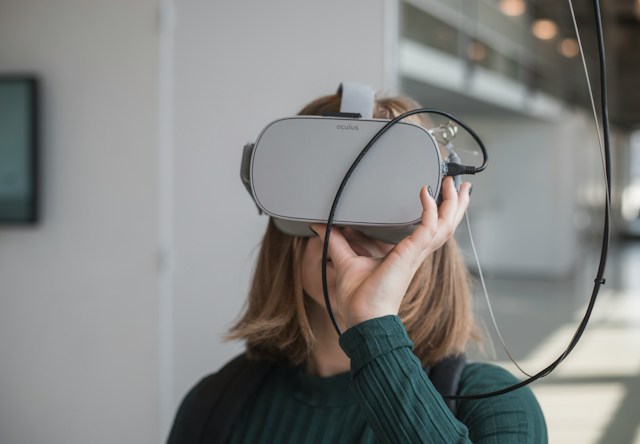Virtual reality (VR) technology has transformed various industries, and healthcare is no exception. With its immersive and interactive capabilities, VR is revolutionizing the way healthcare professionals treat patients, train medical students, and even manage mental health. In this article, we will explore the different applications of virtual reality in healthcare and how it is enhancing patient care and medical education.
Enhancing Medical Education
One of the significant advantages of VR in healthcare is its ability to enhance medical education. Traditional teaching methods often rely on textbooks and lectures, limiting students’ hands-on experience. However, VR provides an immersive learning environment where students can practice surgical procedures, explore human anatomy, and even simulate medical emergencies.
VR simulations allow medical students to gain practical experience in a controlled and safe environment. By interacting with virtual patients and performing procedures, students can develop critical skills and improve their decision-making abilities. This technology bridges the gap between theory and practice, ultimately producing more competent and confident healthcare professionals.
Pain Management and Rehabilitation
Virtual reality has also proven to be a valuable tool in pain management and rehabilitation. By creating immersive and engaging experiences, VR distracts patients from their pain and discomfort during medical procedures. For example, burn victims can use VR to transport themselves to serene and calming environments while undergoing painful wound dressings, effectively reducing their perception of pain.
Furthermore, VR is being used in physical therapy to aid in rehabilitation. Patients recovering from injuries or strokes can engage in interactive exercises and games that promote movement and coordination. This gamification of rehabilitation not only makes the process more enjoyable but also motivates patients to actively participate in their recovery, leading to improved outcomes.
Mental Health Treatment
In recent years, virtual reality has emerged as a promising tool for treating mental health conditions such as anxiety disorders and post-traumatic stress disorder (PTSD). Through VR therapy, patients can confront their fears and anxieties in a controlled environment, gradually desensitizing themselves to triggering stimuli.
For example, soldiers with PTSD can undergo exposure therapy using VR simulations that recreate the scenarios that caused their trauma. By repeatedly experiencing these situations in a safe space, patients can gradually reduce their anxiety and regain control over their emotions. Similarly, individuals with phobias can confront their fears through VR, allowing them to overcome their anxieties and improve their quality of life.
Surgical Planning and Remote Consultations
Virtual reality is also transforming surgical planning and remote consultations. Surgeons can use VR to visualize complex anatomical structures and plan surgeries more effectively. By creating a 3D model of a patient’s anatomy, surgeons can explore different surgical approaches, anticipate challenges, and make informed decisions, ultimately improving surgical outcomes.
Additionally, VR enables remote consultations and collaborations between healthcare professionals. Through virtual reality platforms, doctors can discuss cases, share medical images, and even perform virtual surgeries together, regardless of their physical locations. This technology eliminates geographical barriers, allowing patients to access specialized care and expertise regardless of their location.
In conclusion, virtual reality is revolutionizing healthcare by enhancing medical education, improving pain management and rehabilitation, facilitating mental health treatment, and transforming surgical planning and remote consultations. As VR technology continues to evolve, we can expect even more innovative applications in healthcare, ultimately leading to improved patient care and outcomes. The possibilities are limitless, and the future of healthcare is undoubtedly intertwined with the immersive world of virtual reality.




